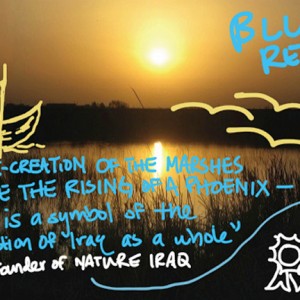Federal Water Tap, September 2: Everglades Restoration Plan
Increase the Flows
The Army Corps of Engineers has released a draft report on how it plans to implement a $US 1.7 billion project to revive the Florida Everglades. In essence, the corps will send more water south from Lake Okeechobee, treat it to remove phosphorous, and let it drain slowly to mimic natural filtration into the River of Grass. Comments on the plan will be accepted through October 13 and can be emailed to CEPPcomments@usace.army.mil.
Dam Safety
A 2008 review found that the worst-case flood scenario for the string of dams and nuclear plants operated by the Tennessee Valley Authority is worse than previously thought. The TVA now plans to raise the height of four dams by 1 to 2 meters (3.5 to 6.6 feet) to decrease the risk from flooding.
USDA Climate Change Report
What is agriculture’s role in the carbon cycle? How many greenhouse gases do farming and ranching produce and capture? The U.S. Department of Agriculture has released a 564-page draft report outlining new methods to calculate the balance.
Coal Hearing
The Senate Energy and Natural Resources Committee will hold a hearing at West Virginia University on September 4 to talk about the future of coal. Three panels, representing industry, labor, academia, think-tanks and state and federal government, will testify.
Chesapeake Bay Hearing
The Senate Committee on Environment and Public Works will hold a hearing on September 3 on efforts to restore the Chesapeake Bay.
Federal Water Tap is a weekly digest spotting trends in U.S. government water policy. To get more water news, follow Circle of Blue on Twitter and sign up for our newsletter.
Brett writes about agriculture, energy, infrastructure, and the politics and economics of water in the United States. He also writes the Federal Water Tap, Circle of Blue’s weekly digest of U.S. government water news. He is the winner of two Society of Environmental Journalists reporting awards, one of the top honors in American environmental journalism: first place for explanatory reporting for a series on septic system pollution in the United States(2016) and third place for beat reporting in a small market (2014). He received the Sierra Club’s Distinguished Service Award in 2018. Brett lives in Seattle, where he hikes the mountains and bakes pies. Contact Brett Walton





Leave a Reply
Want to join the discussion?Feel free to contribute!